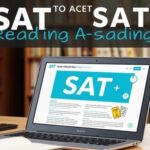Again in the contemporary society, the power to organize yourself is a crucial asset that modern man cannot afford to lack. This is very fundamental areas of life whether in personal life, in education, or even in jobs, a proper plan matters most. But the factor of how efficient the laid down plan would be mainly depends on the wisdom that has gone into the development of the plan and implementation.
Actually, planning is a significant aspect of wisdom which is usually described as the good use of knowledge and experience that we gain in life. In this article, the author focuses on the concept of exercising wisdom in planning ahead and contained guidelines on how this valuable asset can be trained well.
Understanding Wisdom in the Context of Planning
At its core, wisdom encompasses not just knowledge, but also the ability to make sound judgments based on experience, values, and the larger context. In the context of planning, wisdom involves anticipating potential challenges, understanding the implications of various choices, and prioritizing long-term benefits over short-term gains.
Consider the story of an aspiring student named Maya. Eager to pursue her dream of becoming a doctor, she applied to multiple colleges. However, she realized that simply getting into a good school wasn’t enough. Maya needed to plan ahead wisely—considering factors such as course loads, extracurricular activities, and even financial implications. Through careful planning and wise decision-making, she was able to navigate her academic journey, ultimately achieving her goal.
The Role of Wisdom in Education
In educational settings, exercising wisdom in planning ahead can significantly enhance a student’s learning experience. Students who approach their education with foresight and strategic thinking often excel because they are not only focused on immediate results but also on their long-term aspirations.
Setting Realistic Goals:
Wise planning starts with setting achievable goals. Instead of overwhelming oneself with unrealistic expectations, students should establish SMART goals—Specific, Measurable, Achievable, Relevant, and Time-bound. For example, rather than aiming to get straight A’s in every subject in a single semester, a student might focus on improving their grades in one or two challenging classes while maintaining their performance in others.
Understanding Personal Strengths and Weaknesses:
Wisdom also involves self-awareness. Students should assess their strengths and weaknesses honestly. This knowledge allows them to tailor their study plans to fit their unique learning styles and needs. For instance, a student who struggles with time management might allocate more time for assignments while using productivity tools to stay organized.
Prioritizing:
With numerous commitments vying for attention—assignments, extracurricular activities, social engagements—students must prioritize effectively. Wisdom in planning means recognizing what is most important and allocating time accordingly. A student might choose to spend more time on a project that impacts their final grade while ensuring they engage in activities that promote personal growth and well-being.
Incorporating Flexibility:
The best-laid plans can go awry. Exercising wisdom means being flexible and adaptable. If a particular strategy isn’t yielding results, wise individuals reassess their plans and make necessary adjustments rather than stubbornly sticking to a failing course of action.
The Impact of Wise Planning on Personal and Professional Success
The principles of wise planning extend beyond education into personal and professional realms. Individuals who apply wisdom in their planning processes often find themselves better equipped to handle life’s complexities. Here are some key areas where exercising wisdom in planning can lead to significant advantages:
1. Time Management
Effective time management is a hallmark of wise planning. Individuals who prioritize their time wisely can focus on what truly matters, reducing stress and enhancing productivity. For instance, a professional might develop a structured daily schedule that allocates specific time slots for tasks, meetings, and personal time. This not only ensures that important deadlines are met but also allows for a healthier work-life balance.
2. Financial Stability
Financial planning is another area where wisdom plays a crucial role. Individuals who take the time to create a budget, set financial goals, and make informed investment decisions are more likely to achieve financial stability. For example, rather than impulsively spending on luxuries, wise individuals consider their long-term financial goals and make choices that align with those objectives.
3. Career Advancement
In the workplace, exercising wisdom in planning can lead to career advancement. Employees who strategically plan their career paths, seek mentorship, and invest in professional development often stand out. They understand that success is not just about immediate achievements but also about building a sustainable career. This long-term perspective enables them to navigate challenges and seize opportunities more effectively.
Strategies for Exercising Wisdom in Planning Ahead
While the concept of wisdom may seem abstract, there are practical strategies individuals can adopt to exercise wisdom in their planning processes:
1. Reflective Practice
Engaging in reflective practice is an essential step in cultivating wisdom. By taking time to reflect on past experiences—both successes and failures—individuals can gain valuable insights. This practice can involve journaling, meditation, or simply setting aside time for quiet contemplation. For instance, after completing a project, an individual might reflect on what went well, what didn’t, and what could be improved for future endeavors.
2. Seeking Diverse Perspectives
Wisdom often comes from a collective understanding. Seeking diverse perspectives from peers, mentors, or professionals can provide valuable insights that may not have been considered otherwise. For instance, when planning a significant life decision, consulting trusted friends or family members can yield fresh ideas and help identify potential pitfalls.
3. Continuous Learning
Education is a lifelong journey. Individuals should remain open to learning and growing throughout their lives. Whether through formal education, online courses, or self-study, continuously acquiring knowledge equips individuals with the tools needed to make informed decisions. This ongoing learning process enhances one’s ability to plan effectively and wisely.
4. Scenario Planning
Scenario planning involves imagining various future scenarios and developing strategies for each. This proactive approach allows individuals to anticipate potential challenges and prepare solutions in advance. For example, a student might consider different scenarios for their academic year—what if they struggle in a particular subject? What if they receive an internship opportunity? By planning for multiple outcomes, they can navigate their academic journey more smoothly.
5. Mindfulness and Self-Care
Finally, exercising wisdom in planning also involves taking care of oneself. Practicing mindfulness helps individuals stay present and focused, allowing for clearer thinking and decision-making. Engaging in regular self-care activities—whether through exercise, hobbies, or relaxation techniques—ensures individuals have the mental and emotional capacity to plan effectively.
Conclusion
When the future is so unpredictable it is imperative that one exercises caution particularly when charting the future. In every aspect of learning, as well as in professions and relationships, effective planning enables people to face difficulty, embrace opportunities, and succeed. By using the approach that suggests achieving reachable goals, delegating tasks properly, having plenty of strategies ready, people can gain a sense of control and confidence.
Lastly, it’s not just about the exercising wisdom in planning ahead, that is, in giving advice and passing on wisdom about the future but rather it’s about the quality of life. It triggers the individual to open up to learning, being relevant and productive in life hence resulting to what it means to be successful and fulfilled. The ancients tell us that the cultivation of this wisdom enables one to face the challenges of life knowing the end from the beginning.








